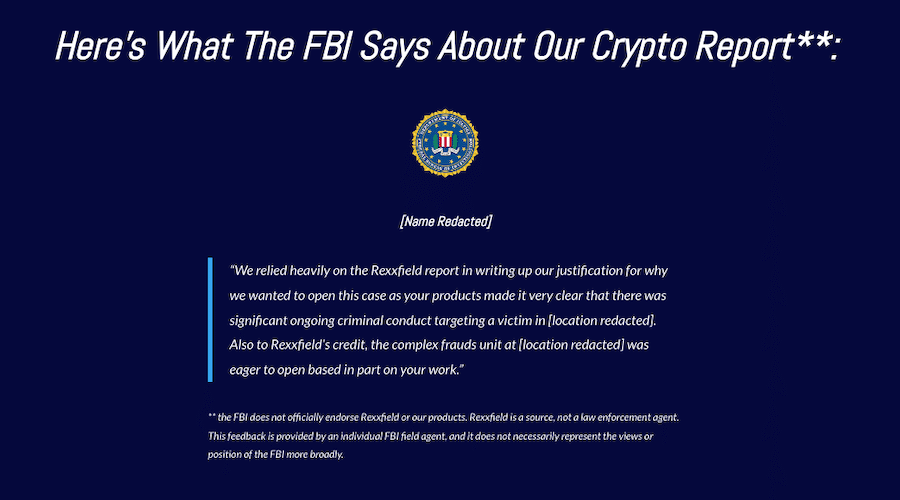Can I get my money back from a Nigerian Romance Scam
You may be the victim of a Nigerian Romance Scam, or may know someone who is. Unfortunately all too common, Nigerian romance scams are a type of online fraud where scammers create fake online personas and engage in romantic relationships with unsuspecting individuals, often with the intention of defrauding them of money or other valuables. These scams are characterized by a fraudster assuming a false identity, building a bond with the victim through emotional manipulation, and eventually requesting financial assistance under various pretenses.
Some victims eventually become suspicious or discover the fraud when they realize inconsistencies in the scammer’s stories, conduct reverse image searches on photos, or conduct further research. Unfortunately, by this point, they may have lost a significant amount of money.
If you are reading this article, you may be a victim yourself. So let’s start with what you really want to know: “Can I get my money back from a Nigerian Romance Scam?”
How can I get my money back from a Nigerian Romance scam

We are not going to pretend that recovering your cryptocurrency is easy – it’s not. But we can sometimes get a partial or full recovery of your crypto if it involves Nigerian scammers thanks to our close collaboration with the Nigerian EFCC .
The Economic and Financial Crimes Commission (EFCC) has recovered N134. 3 billion and 121 million dollars, among others, from proceeds of crime between January and October 2022.
The fact is that recovering crypto depends on a thorough investigation conducted and reported in a way that enables law enforcement to use the evidence to quickly investigate your case – to execute subpoenas, freeze your stolen assets, gain KYC information on the perpetrators and get a court order for recovery. It takes time and a high quality investigation.
Here are some steps to consider:
Keep in contact with the scammers
Most people will tell you to cut off communication immediately. But if you engage in digital forensics investigations like us, we need to communicate with the scammers ourselves or through our clients. We always advise our clients to not let the scammers know they are aware it’s a scam, and to play along a little bit longer.
Report the Scam
In the United States, report the scam to the Federal Trade Commission (FTC) at FTC.gov/complaint. If the scam involved cybercrime, report it to the Internet Crime Complaint Center (IC3) at ic3.gov. If you are outside the United States, contact your country’s law enforcement agency and relevant fraud reporting agencies.
We work Closely with EFCC on Nigerian Scams to Recover Money for Clients
Overseas police corruption, especially in Asia, has always been a challenge in working with local law enforcement and recovering money. However, Rexxfield established a close relationship with the Nigerian EFCC investigators which gave us a break through for our clients with Nigerian scammers. Depending on the evidence we find about the scammers and their location, we refer our case to EFCC, and together with their investigators, we locate and arrest the scammers.
Contact our investigators for help
Crypto Crime Evidence Report
Document all evidence related to the scam, including emails, messages, and any documents or information provided by the scammer. This evidence may be useful for private investigators and law enforcement.
With over 530,000 IC3 complaints reported to the FBI annually, your case is one among many. However, Rexxfield investigators treat each case as unique, conducting a thorough examination of OSINT and blockchain data to provide you with expert recommendations on what can and cannot be achieved.
If the possibility of recovery exists, we go the extra mile by expediting your case through law enforcement channels. In fact, we handle over 70% of the investigative workload for law enforcement agencies, increasing the appeal of your case for law enforcement to take your case.
For individuals who have experienced losses ranging from $75,000 to $250,000 USD, we offer our Crypto Scam Evidence Package. This package compiles comprehensive digital forensics. We will tell you:
- What exactly happened,
- Where your money went,
- Who your scammers are,
- Where they are,
- And what your options are to potentially make a recovery.
It represents the most robust evidence package available in the market, potentially positioning your case closer to the forefront of consideration by local or Federal law enforcement.
The Crypto Scam Evidence Package offers a clear roadmap for decision-making, helping you understand when it’s time to pursue further action and when it’s wise to discontinue efforts to avoid chasing an unattainable outcome.
Our priority is to guide you effectively, ensuring you have the information needed to make informed choices, regardless of whether the outlook is favorable or challenging. The evidence pack gives you the answers you seek.
Learn more about this Evidence Report
Understanding How a Nigerian Romance Scam Works
Initiating contact with the victim
Like in the case of Amy and Brian, the romance scammer, in most cases Nigerian, initiates contact through a dating app with their victim. He uses a fake identity, with an elaborate profile, and a fabricated photo of an attractive woman.

Over time, the scammer invests in building an emotional connection with the victim. They may share personal stories, express love and affection, and listen to the victim’s concerns and desires.
Creating a crisis or emergency
At a critical juncture in the relationship, the scammer fabricates a crisis or emergency situation, such as a medical emergency, legal trouble, or financial hardship. They claim they need urgent financial assistance to resolve the issue.
Request for Money
The scammer requests money from the victim to address the fabricated crisis. They may claim that the funds are needed for medical bills, legal fees, travel expenses to meet the victim, or other seemingly legitimate reasons. Scammers often employ manipulative tactics to pressure victims into sending money quickly. They may use guilt, fear, or threats to convince the victim that their assistance is essential.
Once a victim has sent money, the scammer may continue to invent new emergencies or financial needs, extracting more funds over time.
How do Victims Pay These Nigerian Scammers
Victims of Nigerian romance scams typically pay scammers using various methods, often involving the transfer of money or financial assets. The choice of payment method can vary depending on the scammer’s preferences and the victim’s resources. Some common payment methods used by victims of Nigerian romance scams include:
Wire Transfers: Scammers often request victims to send money via wire transfer services such as Western Union, MoneyGram, or similar services. Wire transfers are popular because they provide anonymity and allow scammers to receive funds quickly.
Bank Transfers: In some cases, victims are instructed to make direct bank transfers to the scammer’s account. Scammers may provide fake bank account details or use mule accounts to receive funds.
Gift Cards: Scammers may request victims to purchase gift cards (e.g., iTunes, Amazon, Google Play) and provide the card codes as payment. These gift cards can be easily sold or redeemed by the scammers.
Bitcoin and Cryptocurrency: Some scammers ask for payment in cryptocurrencies like Bitcoin, which offer a degree of anonymity. Victims may be directed to set up cryptocurrency wallets and make transfers.
Checks or Money Orders: Scammers may send victims counterfeit checks or money orders, asking them to deposit the funds into their bank accounts and then send a portion of the money to the scammer or an accomplice. The victim is left responsible for the entire amount when the check bounces.
PayPal or Online Payment Services: Scammers may request payments through online payment platforms like PayPal. Victims may be asked to send money to a PayPal account associated with the scammer.
Cash Deposits: Victims may be directed to deposit cash directly into a specified bank account, often in a different country.
Prepaid Debit Cards: Some scammers ask victims to load funds onto prepaid debit cards and then share the card details or PIN with the scammer.
Money Mules: Scammers may employ victims as money mules, using them to transfer funds obtained through other scams. This involves the victim receiving money into their account and then forwarding it to the scammer, often unaware of the illicit nature of the transactions.
Emotional impact on victims of a Nigerian Romance Scam
Victims of Nigerian romance scams often experience significant emotional and psychological distress as a result of their interactions with scammers. The emotional toll on victims can be profound and long-lasting.
Victims of romance scams often feel a deep sense of betrayal and a loss of trust in others. They may struggle to trust future relationships, both online and offline. Most victims we help also express a feeling of shame and embarrassment that they fell for the scam. They may blame themselves for not recognizing the deception sooner or for sending money to someone they never met in person.
Some victims have lost friends or family members due to embarrassment, fear of judgment, or ignored warnings. This isolation can exacerbate feelings of loneliness and depression.
We also shouldn’t forget the fact that real feelings were involved, and victims often experience grief and heartbreak, as they believed they were in a genuine romantic relationship with the scammer. The loss of that relationship can be emotionally devastating. Their trust is broken and they may find it hard to trust future online interactions again, and may develop a heightened sense of paranoia. They may doubt the intentions of others and become overly cautious.
And of course, there is in most cases financial stress. Victims may face financial difficulties due to the money they sent to the scammers.
Recovering from a romance scam can be challenging. Victims may find it difficult to move on from the emotional trauma, particularly if they continue to be contacted by the scammer or struggle with unresolved feelings.
Protect yourself from a Nigerian Romance Scam and Similar Frauds
Exercise Caution Online: Be cautious when communicating with strangers online, especially those who quickly express romantic interest.
Verify Identities: Be skeptical of individuals who refuse to share additional photos, video chat, or meet in person.
Beware of Urgent Requests: Be wary of anyone who requests money for emergencies, especially if you’ve never met them in person.
Research and Verify: Conduct research on individuals you meet online and use reverse image searches to check the authenticity of photos.
Report Suspicious Activity: If you suspect you’ve encountered a romance scam, report it to the platform you met the individual on and to your local law enforcement authorities.



